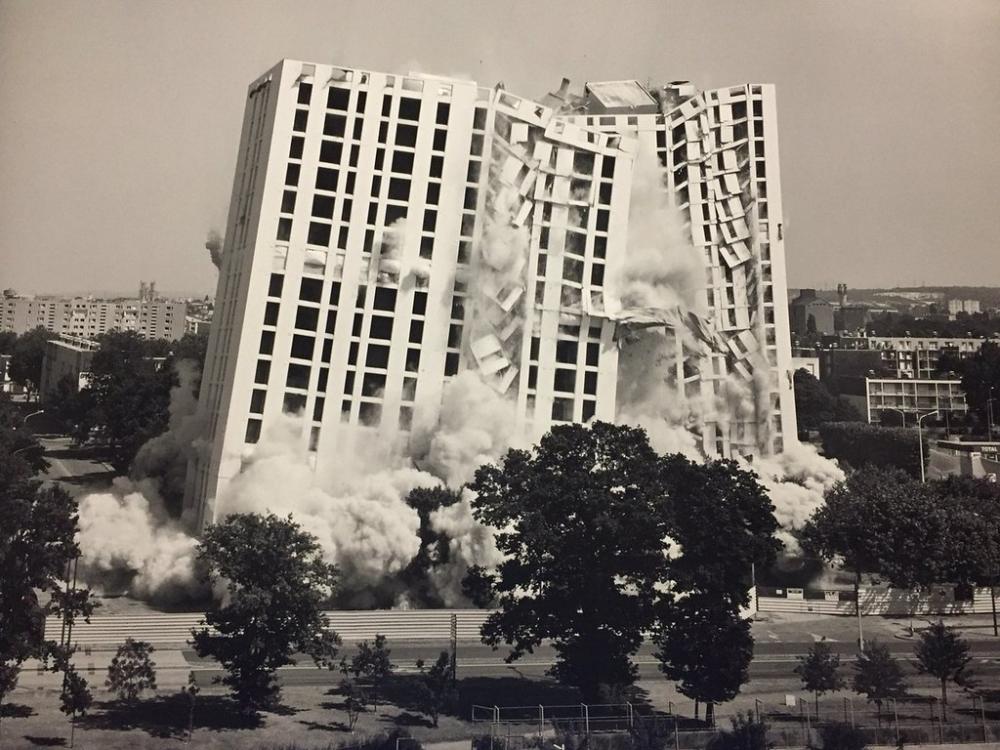Who owns the city? On the "financialisation" of urban housing
Depuis la crise financière de 2008, le logement n’est plus un droit de base évident, mais un attrayant objet d’investissement ou un produit financier dans lequel le (grand) capital trouve une valeur refuge. Les entreprises immobilières cotées en Bourse, les fonds spéculatifs, les sociétés d’investissements privés et les fonds de placement immobilier investissent de plus en plus dans le marché du logement (de location), par exemple, en achetant des immeubles entiers d’appartements. Dans leur soif de bénéfices toujours plus importants, ces investisseurs font du lobbying en faveur d’une dérégulation du marché, font augmenter les prix de vente et de location, soit ils laissent sciemment les biens acquis se délabrer pour ensuite pouvoir les raser et faire construire à la place des tours de logements (souvent onéreux). Chemin faisant, ce sont souvent les populations les plus précaires et les plus démunies qui sont ainsi poussées hors des (centres-)villes, devenu(e)s inabordables, alors qu’elles y vivent souvent depuis des générations et y ont pris racine.
À Bruxelles aussi, ce scénario est connu. À qui appartient la ville ? Les habitants ont-ils encore quelque chose à dire dans leur quartier ? Quel contrôle la politique locale exerce-t-elle encore sur la ville ? Et comprenons-nous assez bien ce qui est train de se jouer dans nos villes ?
Dans ce programme, nous partons en quête avec Leilani Farha, Fredrik Gertten et Alice Romainville des causes fondamentales de ces problématiques et de ces changements. Lietje Bauwens et Wouter de Raeve assurent la scénographie.
Au programme :
- Une interview de Leilani Farha (ancienne rapporteuse à l’ONU du droit au logement & protagoniste du documentaire PUSH) – en direct de Canada –sur la manière dont les tendances observées lors du tournage de PUSH ont continué à se développer depuis, et sur son nouveau projet The Shift (www.make-the-shift.org). Modéré par Quinsy Gario.
- Une table ronde avec, entre autres, le réalisateur de PUSH, Fredrik Gertten, et Alice Romainville (Brussels Studies Institute/ULB, spécialiste du marché du logement à Bruxelles). Au premier rang, nous invitons les organisations, les militants et les habitants qui, depuis la ligne de front de ce combat et de cette problématique, peuvent enrichir la discussion grâce à leur perspective indispensable. Ce débat est également modéré par Quinsy Gario.
- Au premier rang, des représentants d'organisations telles que FairFin, le Rassemblement Bruxellois pour le Droit à l' Habitat, la Coordination des Sans-Papiers et la Coalition d'Action Européenne viendront enrichir la conversation de leurs points de vue.
• Quinsy Gario is a performance poet and artist from Curaçao and St. Maarten. His work centers on decolonial remembering and unsettling institutional and interpersonal normalizations of colonial practices. Gario's most well-known work is Zwarte Piet Is Racisme (2011–2012). As a member of the collective Family Connection established in 2005 by Glenda Martinus and Gala Martinus, respectively his mother and aunt, his current research is about attempting to institute otherwise.
• Leilani Farha is the former UN Special Rapporteur on the Right to Housing and Global Director of The Shift. Her work is animated by the principle that housing is a social good, not a commodity. Leilani has helped develop global human rights standards on the right to housing, including through her topical reports on homelessness, the financialization of housing, informal settlements, rights-based housing strategies, and the first UN Guidelines for the implementation of the right to housing. She is the central character in the documentary PUSH regarding the financialization of housing, screening around the world. Leilani Launched The Shift in 2017 with the UN Office of the High Commissioner for Human Rights and United Cities and Local Government.
• Frederik Gertten is a director and journalist based in Malmö, Sweden, and owner and manager of the production company WG Film which he founded in 1994. Previously he worked as a foreign correspondent and columnist for radio, TV and press in Africa, Latin America, Asia and around Europe. Today he combines filmmaking with a role as a creative producer at WG Film. Recent films include PUSH (2019), BIG BOYS GONE BANANAS!* (2012) and BIKES VS CARS (2015).
• Alice Romainville is a researcher at the Laboratory of Human Geography at the ULB. Her doctoral thesis, defended in 2015, is entitled La production capitaliste des logements à Bruxelles.
• 431 initiates multidisciplinary frameworks for the creation, curation, and research of forms of knowledge production and presentation such as spatial interventions, text, performance and film. Each project puts forward its own specific methodology. 431 is initiated by Lietje Bauwens and Wouter De Raeve. Bauwens (1990) studied philosophy, writes for different cultural platforms, and was artist in residence at the Van Eyck academy 2018–19. De Raeve (1982) studied landscape architecture and visual arts and produced several lecture series, publications and installations.
collaboration of Cosmopolis, Brussels Academy, Community Land Trust Brussels, Brussels Centre of Urban Studies & Kaaitheater.
Voor dit debat heb je een festivalbandje nodig. → koop je bandje
Voor dit programma heb je een Covid Safe Ticket nodig. Hier vind je meer info. Lees ook het Kaaitheater statement: Wie heeft toegang tot theater?
